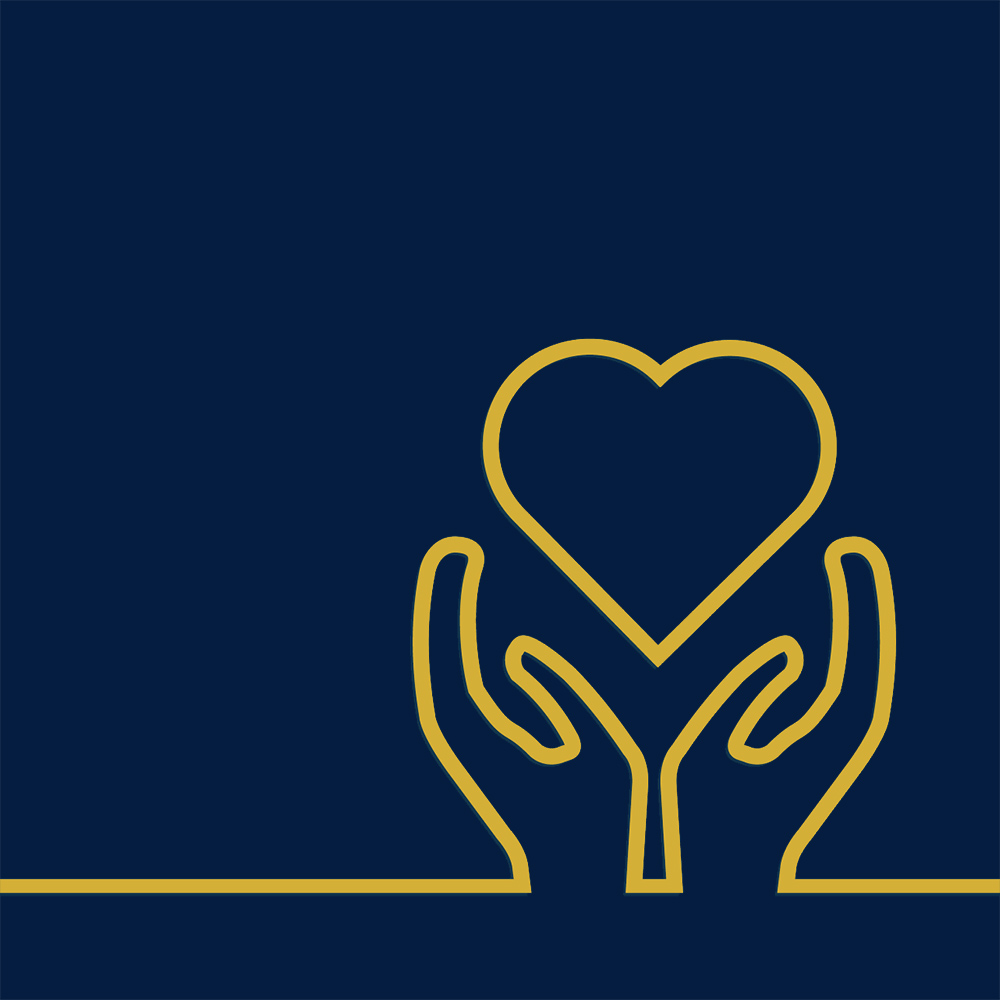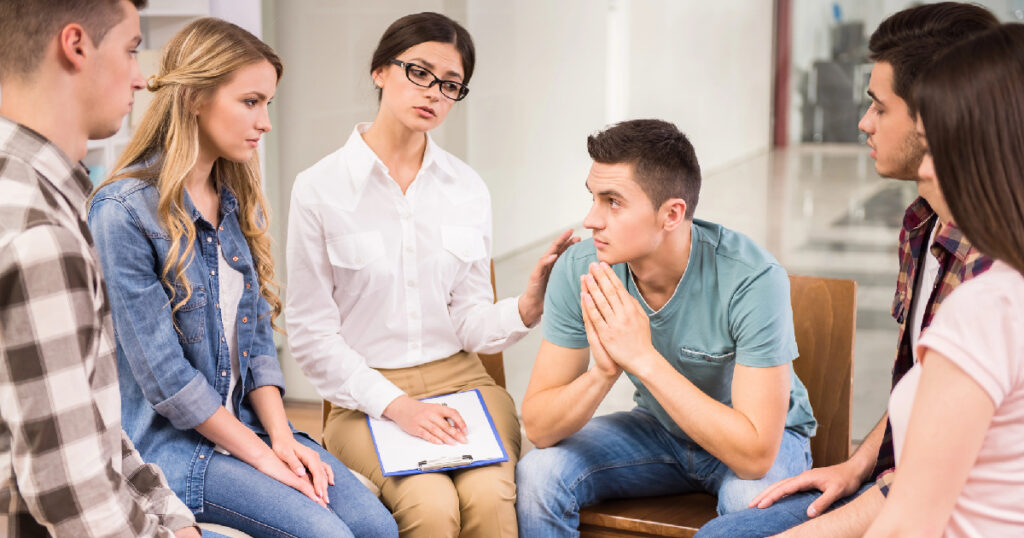Local Meetings and Free Groups
Recovery from alcohol and other drug addiction is a long process. The support of self-help groups is an important part of recovery. You can find information about local meetings below:
Al-Anon Pennsylvania
Northampton County Drug & Alcohol Division - The objectives of the Northampton County Drug & Alcohol Division are to raise public awareness of the dangers of alcohol abuse, drug abuse, problem gambling, and to offer resources to treat and prevent the disease of addiction.
Online Addiction Recovery Support
Al-Anon/Alateen
Al-Anon members are people who are worried about someone with a drinking problem. Al-Anon/Alateen Meetings are held around the world.
Al-Anon World Services
Al-Anon Online Meetings
Narcotics Anonymous (NA)
"Founded in 1953, NA is a global organization that offers peer support to maintain a lifestyle free of drugs, including alcohol. "
Narcotics Anonymous World Services
Nar-Anon
The Nar-Anon Family Groups are a worldwide fellowship for those affected by someone else's addiction. As a twelve-step program, we offer our help by sharing our experience, strength, and hope.
Nar-Anon World Services
Gamblers Anonymous (GA)
GMBLERS ANONYMOUS is a fellowship of men and women who share their experience, strength and hope with each other that they may solve their common problem and help others to recover from a gambling problem.
Gamblers Anonymous Services
Gam-Anon
Gam-Anon created this website to provide information for the general public and professional community about the problem of compulsive gambling and its financial and emotional effects on the gamblers' families and loved ones.
Gam-Anon® International Service Office
Apps for Finding Addiction Recovery Meetings
Some organizations have apps you can use to find meetings nearby, such as the following, that can help you find meetings in your area:
Meeting Guide from Alcoholics Anonymous
NA Meeting Search from Narcotics Anonymous
Al-Anon Family Groups from Al-Anon
You can still find a meeting the old-school way by looking up a phone number in the white pages or online.
Changes to Recovery Meetings Due to COVID-19
To help prevent the spread of COVID-19, many organizations have put their in-person meetings on hold and are offering virtual meetings, phone calls, and emails. Contact organizers to get the most updated information on offerings and locations.
Addiction Recovery Resource FAQs
Q: What Is Addictive Behavior?
A: Addictive behavior can present itself in many ways. Well-known addictions include addictions to substances such as drugs, alcohol, prescription medications and food. There are also behavioral addictions, such as gambling, sexual behavior, eating, and even over-exercising. Addiction is classified as an intense and persistent compulsion to use a substance or engage in a behavior. There are varying degrees to addiction, each potentially leading to various negative consequences. These consequences can seriously impact a person’s life unless they seek recovery.
Q: What Causes Addiction?
A: Addiction can stem from several factors. Addiction can arise as a response to stress, mental and physical health issues, or even from a drive to feel good. Addiction also appears to be influenced by genetics, meaning the addictive traits that may have passed to you may also be shared by other members of your family. Scientists have identified a dopamine rush in the brain while engaging in addictive behavior; simply put, engaging in addiction feels good, at first.
When something feels good, humans are more likely to repeat the behavior again and again. However, the brain and body soon become accustomed to receiving addictive chemicals and stimulation to function normally, and an addicted individual needs to consume more of the substance to achieve the same effect. Addiction becomes difficult to recognize and break because the individual must now look for ways to replace the rush of happiness. What often pushes addiction out of control is when the joy or relief a person feels from engaging in the addictive behavior is outweighed by the negative consequences that occur.
Q: What Are the Four Major Dimensions of Recovery?
A: According to SAMHSA, recovery must achieve harmony within the following areas:
- Health: Focusing on healthy, informed, personal choices
- Home: Creating a place that is stable and safe
- Purpose: Setting personal goals and becoming an active member in society
- Community: Surrounding oneself with a positive support system
Each of these dimensions provides a new outlook for a patient in recovery. It brings ownership to the process in order to empower the patient. Through any recovery process, you will learn how to face the negative challenges of each area and build a stronger, more confident, person that is able to replace addictive, harmful behaviors with positive, intentional ones. When you focus your
recovery on only one area, you struggle with maintaining the recovery because you have not created a healthy balance that can help provide outlets when the temptation reoccurs. Establishing that balance is best achieved by working with trained professionals and will improve your chances for success.
Q: Will Recovery Rebuild My Relationships?
A: In a sense, yes. Recovery does not automatically restore your past relationships, but it will help you learn how to begin reconciling with those who may have been hurt by your addiction. Recovery can help you recognize those individuals who may have been contributing to addiction as well. When in recovery you may experience many emotions such as shame, embarrassment, anxiety, fear, and so many others that could lead to a desire to isolate. However, recovery is the time when it is most important to focus on rebuilding relationships.
Through the recovery process, it is important to rebuild your social circle. You must be surrounded by others who will help you make healthy choices, and can be a system of support for you while you are on your journey toward a healthier you. While you travel the new path you have created, forming new relationships that are built on positivity and support is just as important as rebuilding past ones. Attending recovery groups is a great way to begin the process by connecting with others who have similar experiences.
Q: How Do I Know if Group Therapy Is Right for My Recovery?
A: Every individual is different and every addiction is different. As a result, it can be difficult to determine what is best for you and your recovery. Speaking with trained professionals about your addiction will help all involved determine the specific course of action that will give you the best chance at sustained recovery.
As one of the most commonly utilized addiction treatment therapies, group therapy has numerous benefits. Participating in a recovery group can surround a person with comfort and familiarity as they do not feel isolated, strange, or alone in their addiction. Participants can also begin to build a network of supportive individuals to continue receiving help in the future. Best of all, there are groups for all tastes, including groups based around family, spirituality, and even language or ethnicity.
Q: What Are Some of the Signs of Addiction?
A: Addiction can harm relationships, destroy physical and mental health, cause job loss, create financial burdens, and more. These issues can affect not only the person who is suffering from the addiction, but also those around them. Beginning recovery is critical to preserve health and restore relationships, but knowing the signs of addiction is crucial to encouraging yourself or a loved one to seek help. Those who suffer from addiction may display some of the following signs:
- Changes in activity level (over- or under-active)
- Weight loss
- Changes in eating habits
- Missing work or school
- Isolation
- Legal problems
- Denial
- Confusion
- Rationalization
- Visible intoxication
- Balance issues
- Dishonesty
- Violence
Having the know-how to recognize the signs in others and even in yourself will help you find the necessary treatment that can begin the first steps to recovery.
Q: What Should I Do if I Am Suffering From Addiction?
A: If you or someone you love is experiencing addiction, it is important to seek professional help. A professional can help by instilling trust within the person or family, teaching them to be honest about their addiction, respecting privacy, and offering physical and mental health support to ease away from the substance of choice.
Overcoming addiction often requires the aid of medication and mental health treatment to prevent dangerous withdrawals and relapses, and this process is best achieved by a professional. Aside from professional help, the biggest asset to the recovery of someone suffering addiction is that they are surrounded by love, support, and patience. If you are suffering from addiction, reach out today. If your loved one is addicted, encourage them to seek help as soon as possible.







